The Independent's journalism is supported by our readers. When you purchase through links on our site, we may earn commission.
Why Lviv makes the best weekend break this winter
Laidback cafes, chocolate shops and fairytale architecture – here's why the Ukrainian city is the perfect cultural break
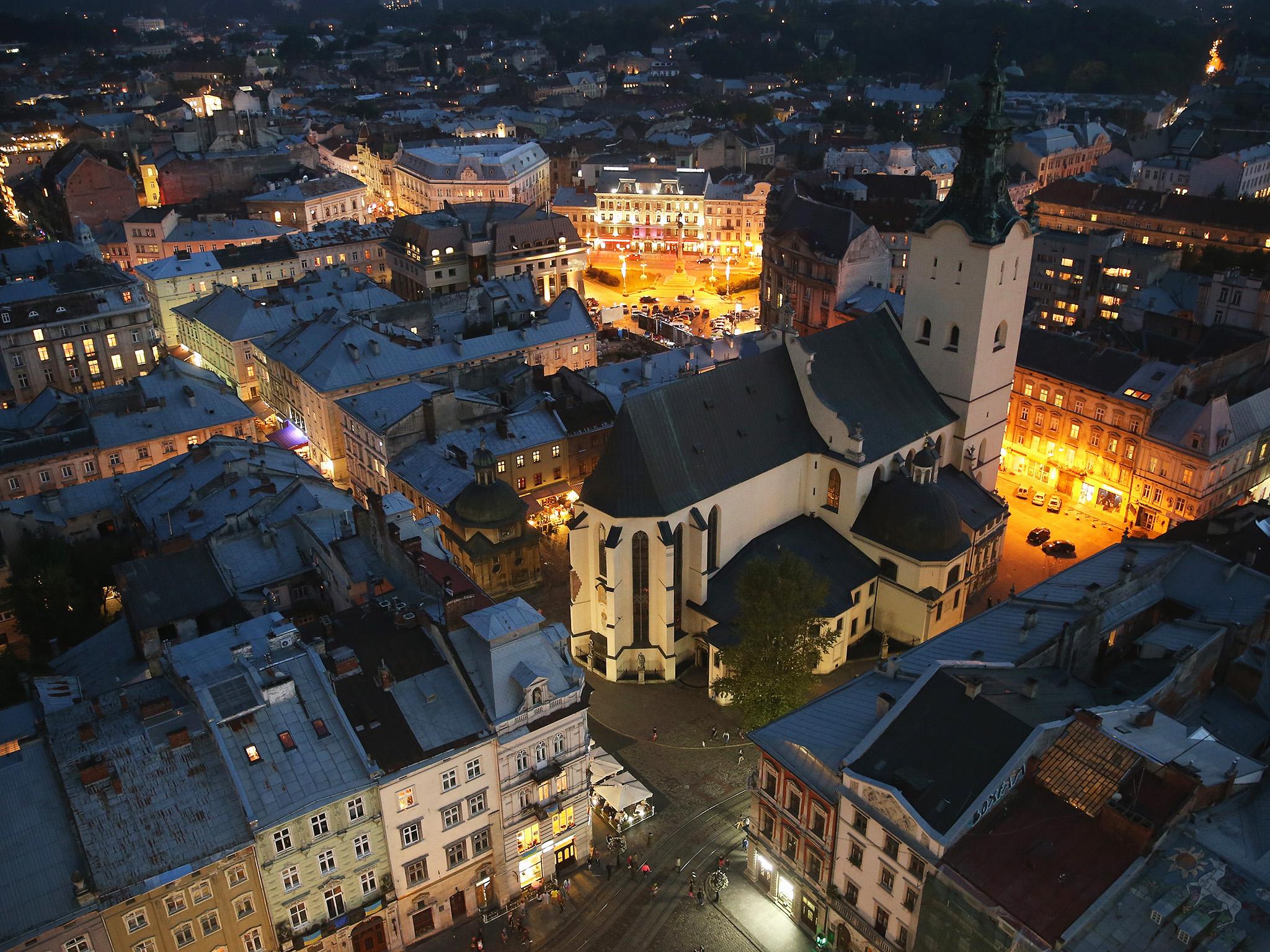
Your support helps us to tell the story
From reproductive rights to climate change to Big Tech, The Independent is on the ground when the story is developing. Whether it's investigating the financials of Elon Musk's pro-Trump PAC or producing our latest documentary, 'The A Word', which shines a light on the American women fighting for reproductive rights, we know how important it is to parse out the facts from the messaging.
At such a critical moment in US history, we need reporters on the ground. Your donation allows us to keep sending journalists to speak to both sides of the story.
The Independent is trusted by Americans across the entire political spectrum. And unlike many other quality news outlets, we choose not to lock Americans out of our reporting and analysis with paywalls. We believe quality journalism should be available to everyone, paid for by those who can afford it.
Your support makes all the difference.Why go now?
Lviv plays host to more than 100 festivals a year, but the best of them all is coming up this weekend: the annual chocolate festival. Lviv’s National Chocolate Festival takes place 13-15 October in the Palace of the Arts building (1), where local artisans will be showing off their latest creations, including chocolate sculptures standing nine feet high.
But there’s never a bad time to go to this beautiful city – not least because, as the pound falls against the euro, the Ukrainian hryvnia feels like even better value.
In western Ukraine, 45 miles from the Polish border, Lviv has escaped the recent conflict, and the past two decades have been spent desperately trying to shake off its former Soviet status to merge with the rest of Europe. Buildings are painted in bright colours, a slew of five-star hotels opened for Euro 2012, and there are pizza and wine bars galore. And with a plethora of art galleries, monuments, cathedrals and museums, it’s little wonder this is swiftly becoming a popular cultural city break.
Get your bearings
Home to 720,000 people, Lviv is a compact and walkable city (although the cobbles can make it hard underfoot), with the historic Old Town at its centre. Cobbled Rynok Square (2) is the centre, surrounded by pastel-coloured buildings dating from the 16th century. The tourist information centre (3) sits in the middle. It’s open daily from 10am-6pm Monday to Friday, and closes at 5pm on Saturday and 4pm on Sunday.
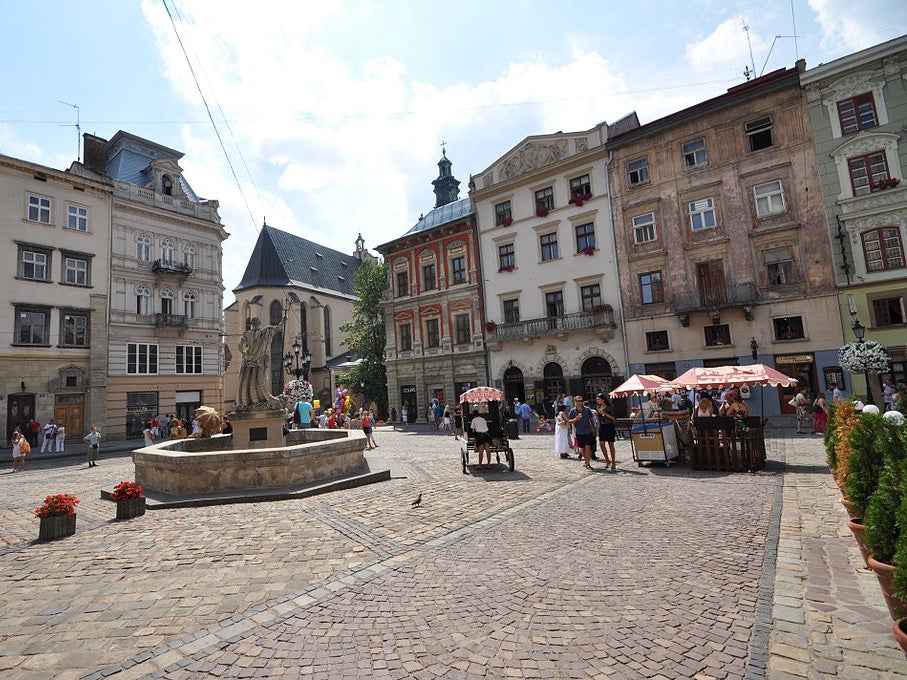
The city centre is largely flat, though it’s set around the highest point, Castle High Hill (4), where superb panoramic views show the contrast between Soviet-style blocks flats on one side and the spires and cupolas of the Old Town on the other.
Current rate: £1 = 35 Ukranian hryvnia (UAH)
Day one
Take a view
Behind the tourist information centre is the Town Hall (5), where there has been a building since the 1300s. Climb 400 steps up the tower (Ukraine’s tallest, at 65m) to the viewing platform for a panorama of the Old Town below. Beware that the stairs are steep and badly worn – it’s not for the faint-hearted.
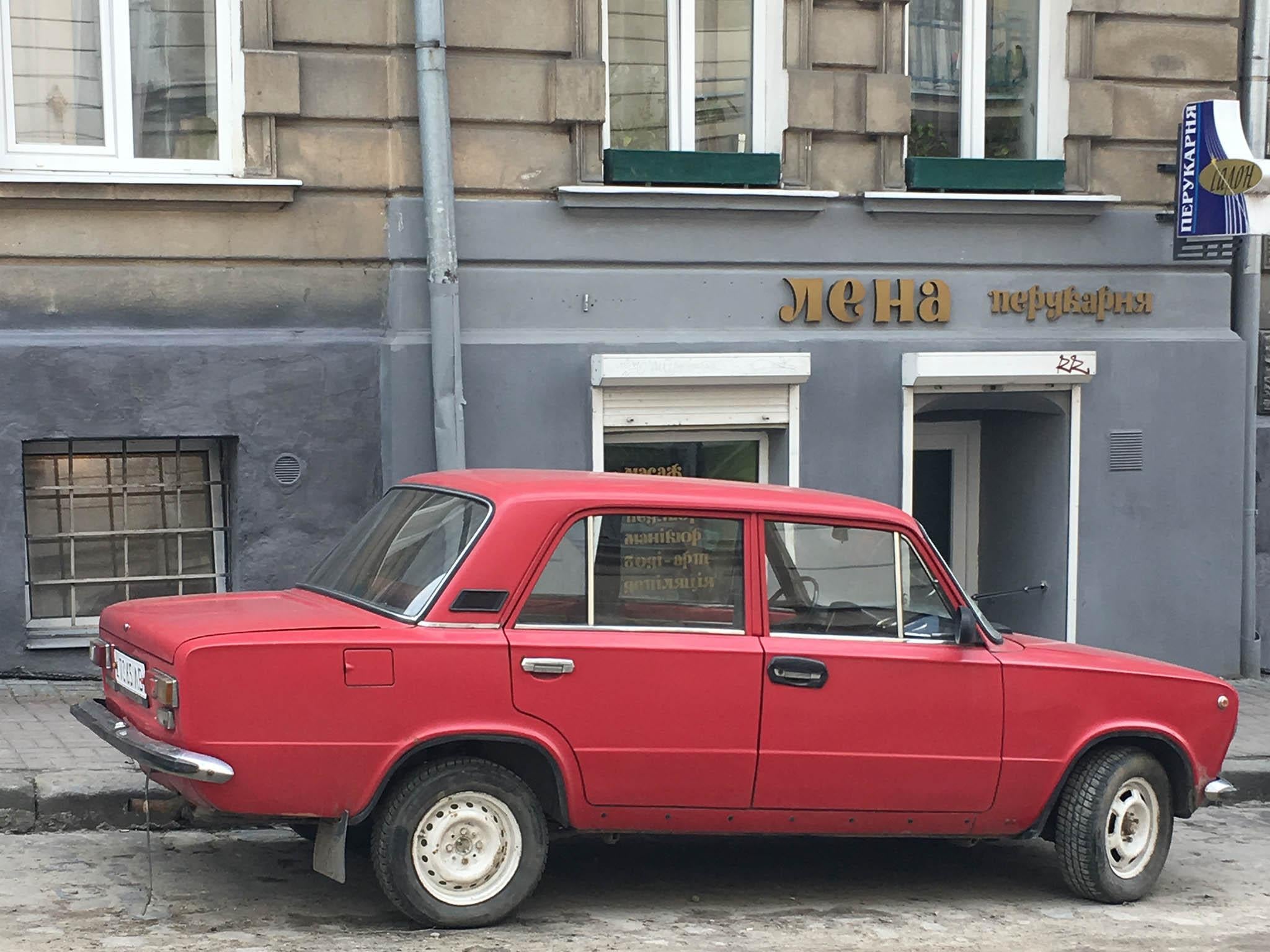
Window shopping
Chocoholics should try Lviv Handmade Chocolate (6) on 3 Serbska Street – it’s open 9am-11pm. With two floors of chocolate, there’s plenty to choose from: pick your own truffle selection or sit on the terrace with a traditional Lviv hot chocolate – large, creamy and heavily spiced.
Markets are big in Lviv, too. From Rynok Square, head east to Muzeina Square on Pidvalna Street, where you’ll come to a daily outdoor used book market (7) that surrounds the large statute of Ivan Fyodorov – the 18th-century father of Slavic printing. It’s also the place to find vinyl records – mostly from the Soviet days – and old notes, coins, army badges and other bits and bobs.
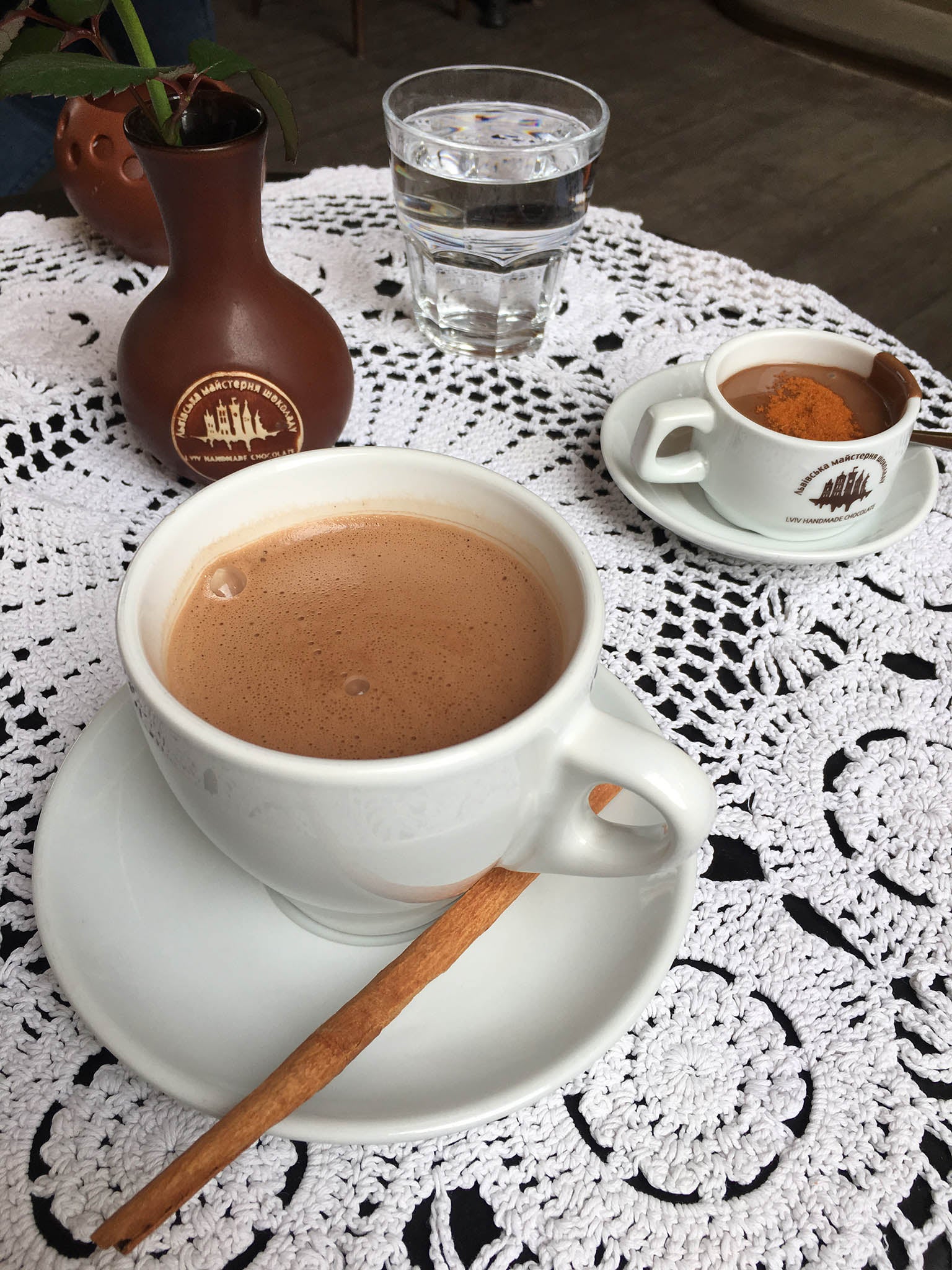
Take a hike
Home to Polish, Armenian, Jewish and Austrian cultures as well as Ukrainian, Lviv has a smorgasbord of churches. Under Soviet rule, many were retooled for other uses, and it wasn’t until 2011 that they returned to places of worship. The largest – the Jesuit Church, otherwise known as the Saints Peter and Paul Garrison Church (8) – had become a storage area for more than 2 million science books in the meantime. To take in eight of the best, download the GPS My City app: a self-guided mile-long walking tour that uses offline maps, beginning at the Bernardine Cathedral and Monastery (9), and including the Latin Cathedral (10), Armenian Cathedral (11), and finishing at the Carmelite Church (12).
Lunch on the run
Back in Rynok Square is the oddly-named Galician Cheese Cake and Strudel Bakery (13). Here, various types of strudel, both sweet and savoury, are made in front of you and served in large portions, either to eat inside or take away. The flavours cover everything from sweet cherries to savoury salmon, and a slice costs around £1.20. For dessert, as the name suggests, they also do a fine line in cheesecake.
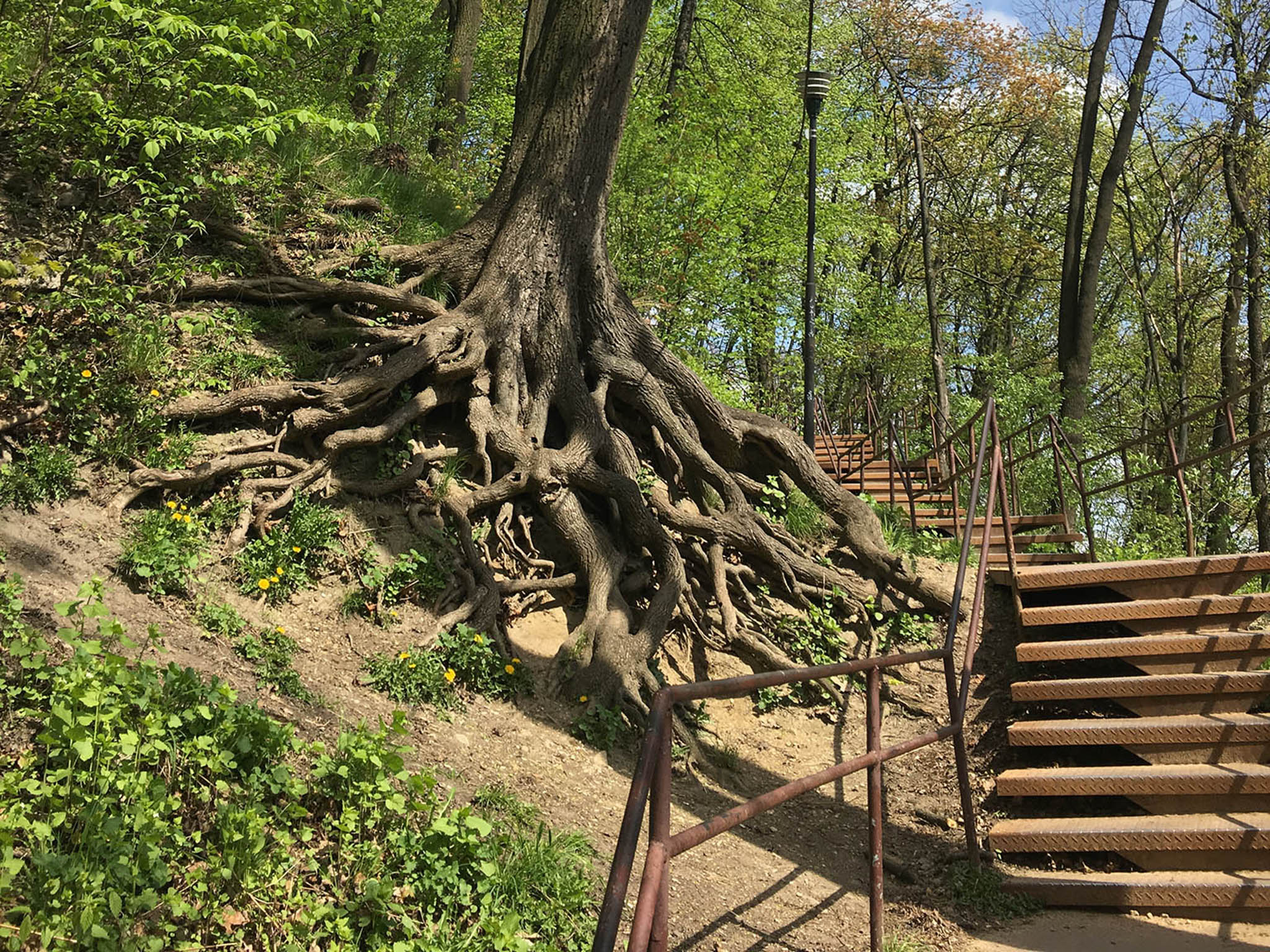
Take a ride
Outside the tourist information centre (3) are some of the city’s Next Bikes (14) – rental bikes (about 90p for half an hour). As you’d expect, they’re hired on a pay-as-you-go basis after registering via phone or at the terminals; you then return them to their stands after use. Ukraine joined the scheme in 2015 and has around 165 bikes at seven stations. Either take a loop of the city, or head south to Stryisky Park (15) which has ponds with swans, a greenhouse and rock gardens. Then head back north to drop your bike at Ivan Franko Park (16).
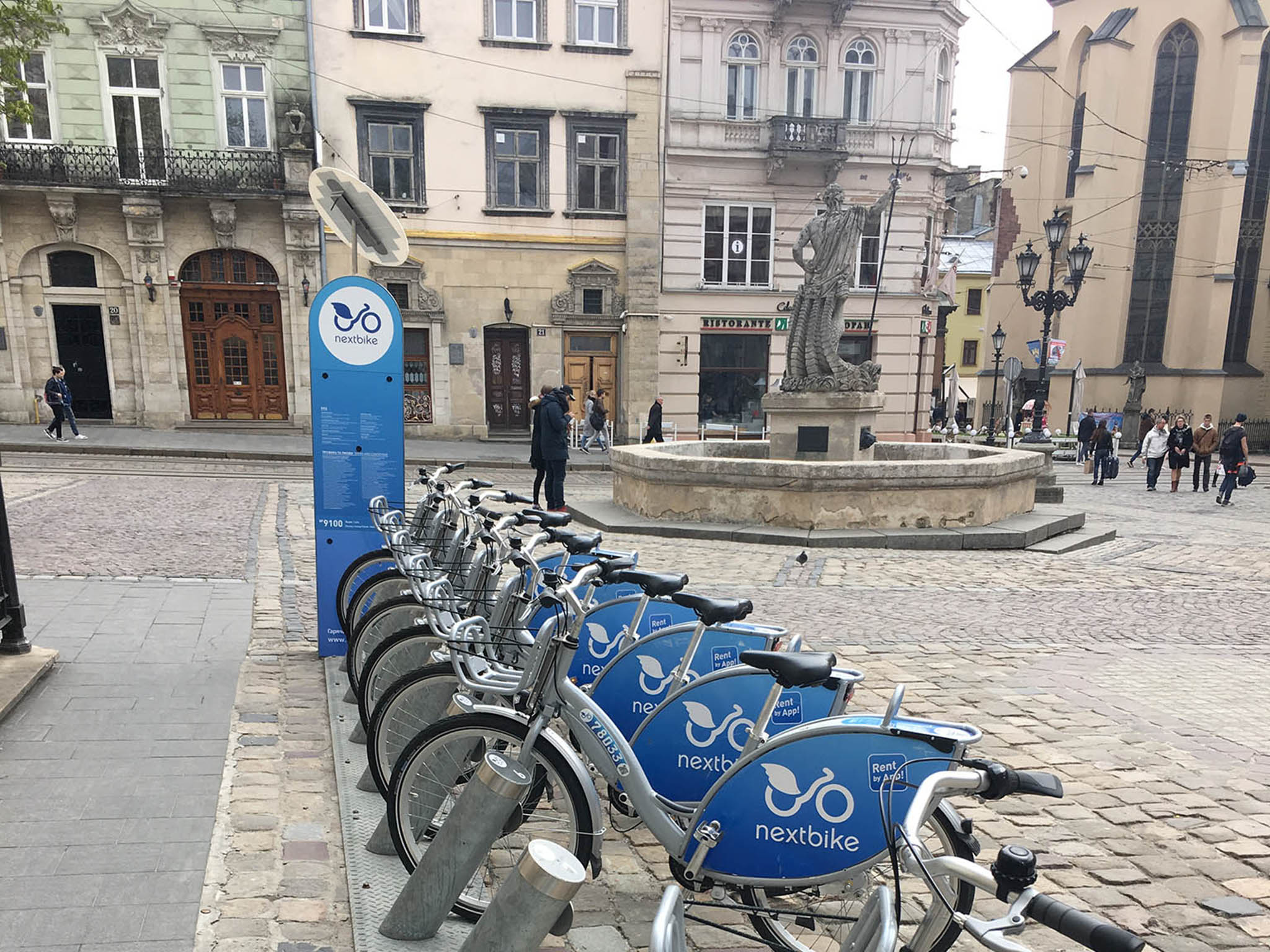
A walk in the park
After dropping off your bike at the entrance to the park (station number 9101), stroll around Ivan Franko’s wide boulevards, lined with maple, oak and chestnut trees. It’s one of a handful of the city’s green spaces and was the first to be opened to the public (most older residents know it as Kosciuszko Park, the name it was given on opening in 1919). There’s a bandstand that gives it a London vibe, too.
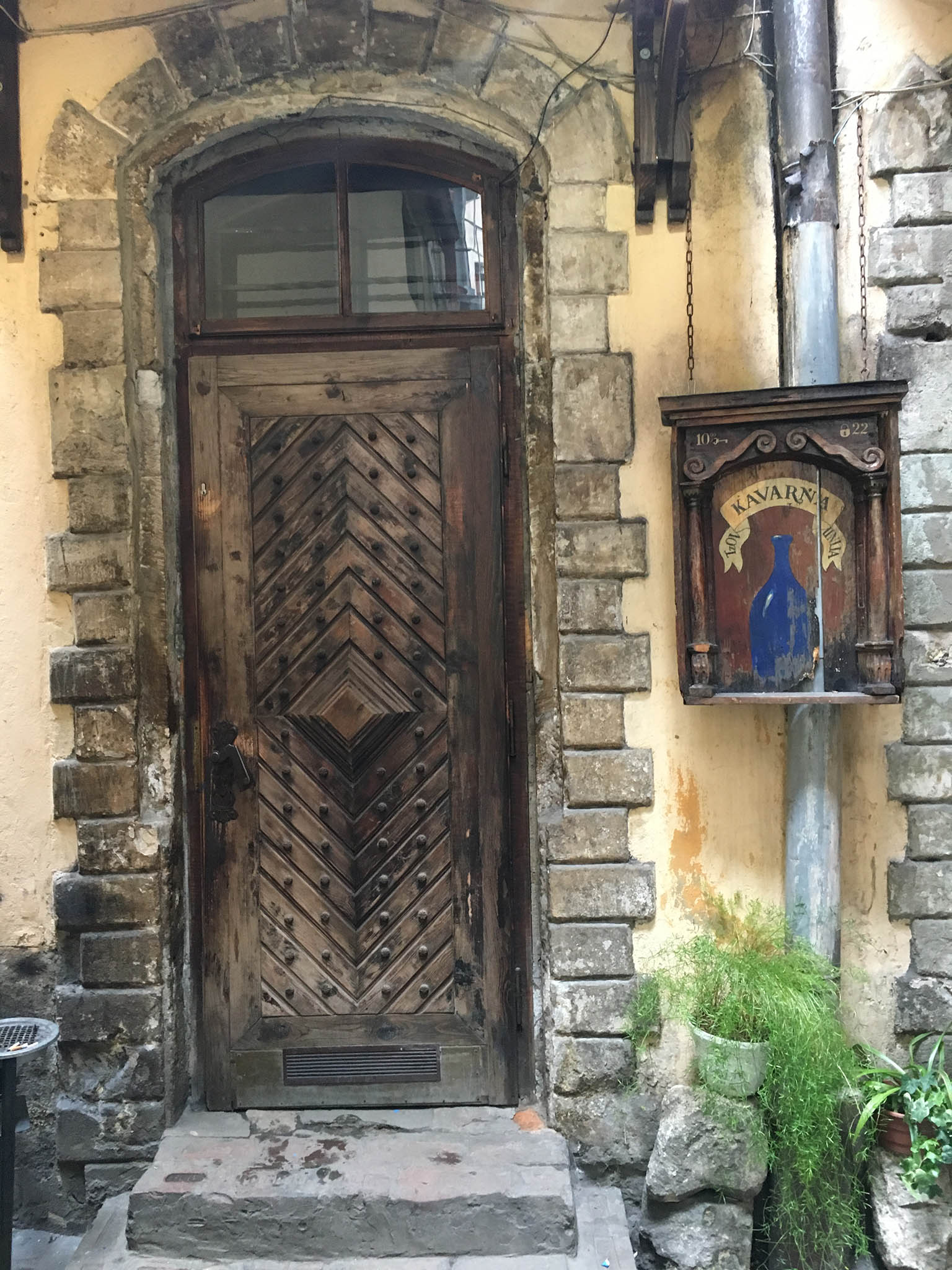
Dine with the locals
Stay away from the streets of touristy restaurants surrounding Rynok Square and try Trapezna (17), at 4 Kozelnytska Street nearby. Don’t be fooled – on opening the door you step into a tiny gallery – but follow the stairs down and you’ll find the restaurant, in what was once a monastery refectory. It’s still a simple place to eat, but serves fantastic food in an atmospheric cellar with low ceilings and worn wooden benches. Try the hog ribs baked in honey and the rabbit stew. Most dishes are about £1.50, so order a few items and share.
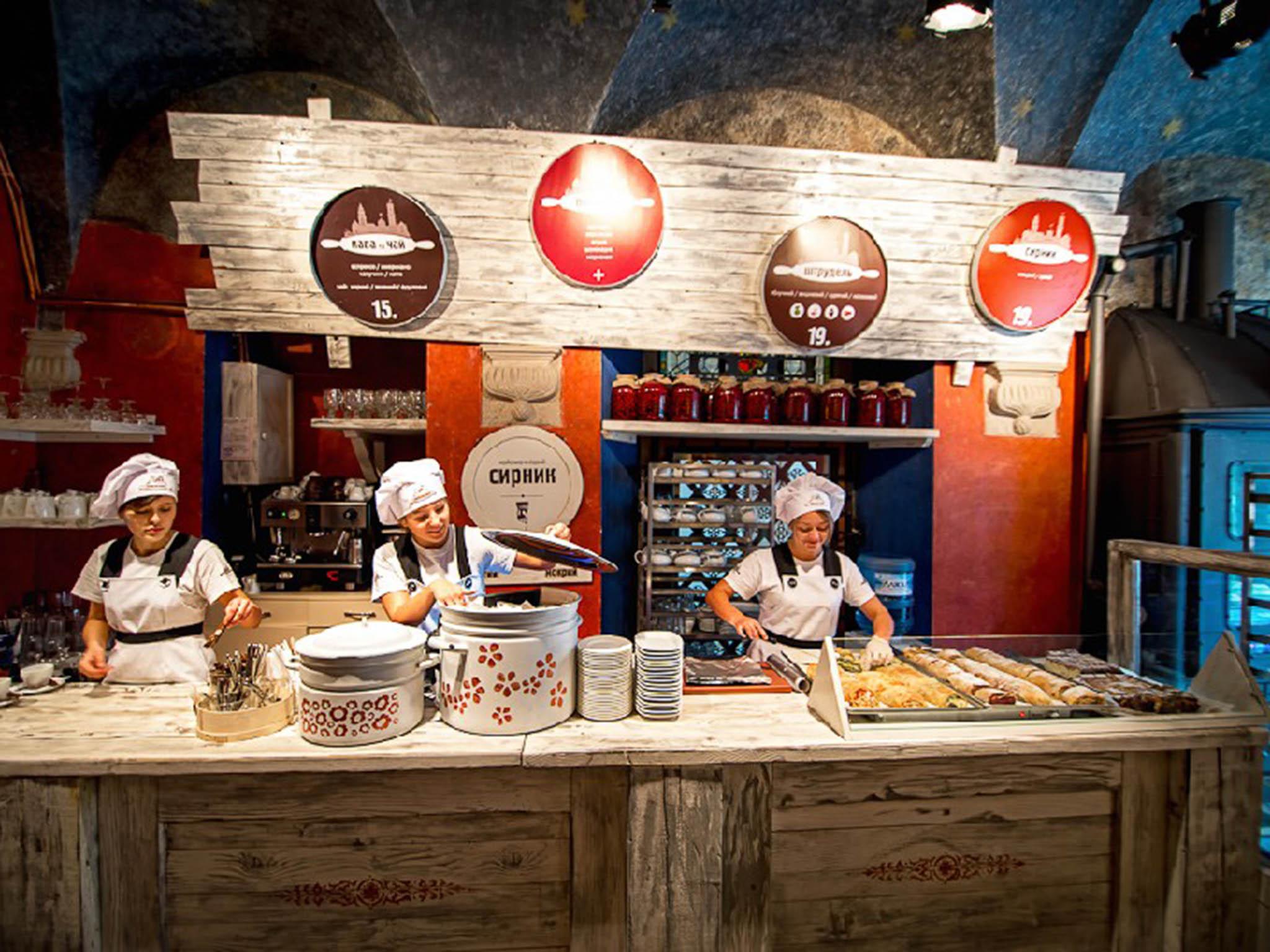
Day two
Out to brunch
You’ll have to get up early to eat at Baczewski (18) – the queues start building from 9am. Seating around 30 people in an orangery, and brought to you by the family which set up Lviv’s first vodka distillery in the 18th century, it offers a glass of champagne and a shot of vodka, tea or coffee and as much as you can eat from the buffet, for around £2.50. The food is fairly mediocre, but what you’re really there for is the beautiful interior, with green plants hung from every wall, green velour cocktail seats, tweeting birds and a pianist playing sprightly Ukrainian music.
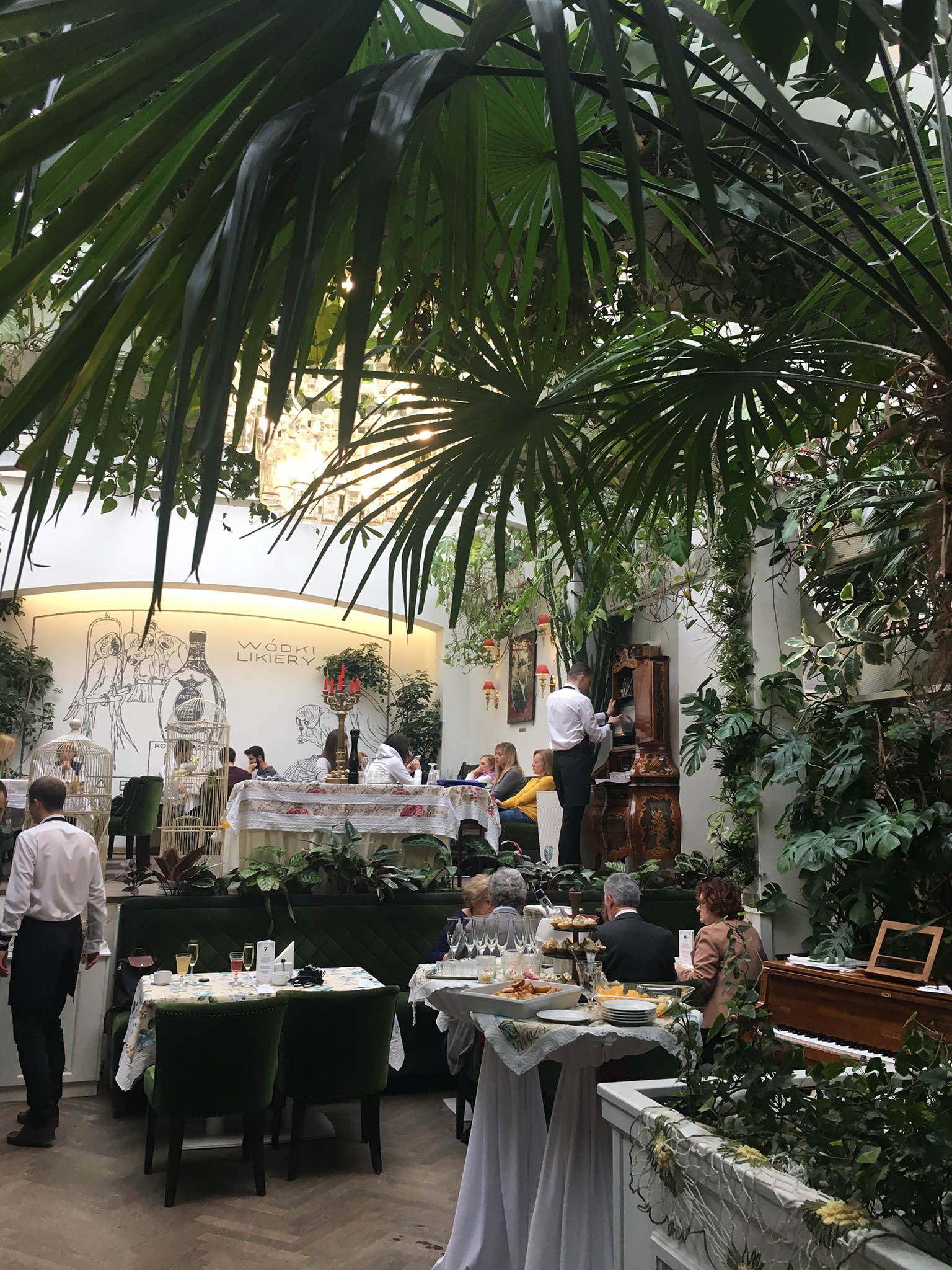
Cultural afternoon
Lviv National Art Gallery (19) is split between the grand 19th century Potocki Palace building on Mykoly Kopernyka Street and its second outpost on Stefanyka Street (20). The collection spans from the 14th to early-20th century European artworks, with paintings by Rubens, Goya and Bruegel, while the second gallery plays host to the largest Polish collection of works, second only to Poland itself. Entry is a bargain at around 60p.
An aperitif
Lviv inherited Vienna’s coffee house tradition from its days under Astro-Hungarian rule. There are still plenty of cafes, with many creating their own brew. One of the best is Pid Synoyu Plyashkoyu (Under the Blue Bottle) (21), at 4 Ruska Street. A sign of a blue bottle leads into a traditional coffee shop with vaulted ceiling and a candle-lit interior. You’ll find no English speakers here, but the coffee is punchy and the Ukrainian music is interesting. If you’d prefer a cocktail, head to the top floor of the Panorama restaurant to the Josper Bar (22) for views over the skyline where you’ll be eye-level with the roof of the Opera House.
Icing on the cake
Lviv’s Opera House (23) is one of the fanciest places in the city. Built to ape Vienna’s opera house, with winged bronze statues symbolising comedy, drama and music topping its opulent facade, it was and designed by Polish architect Zygmunt Gorgolewski as a hybrid of Renaissance and Baroque style. Showing classic operas and ballets, tickets start from around £1.40 for the cheapest seats up to a blow-out £9 for the most expensive. Check the website for the latest productions.
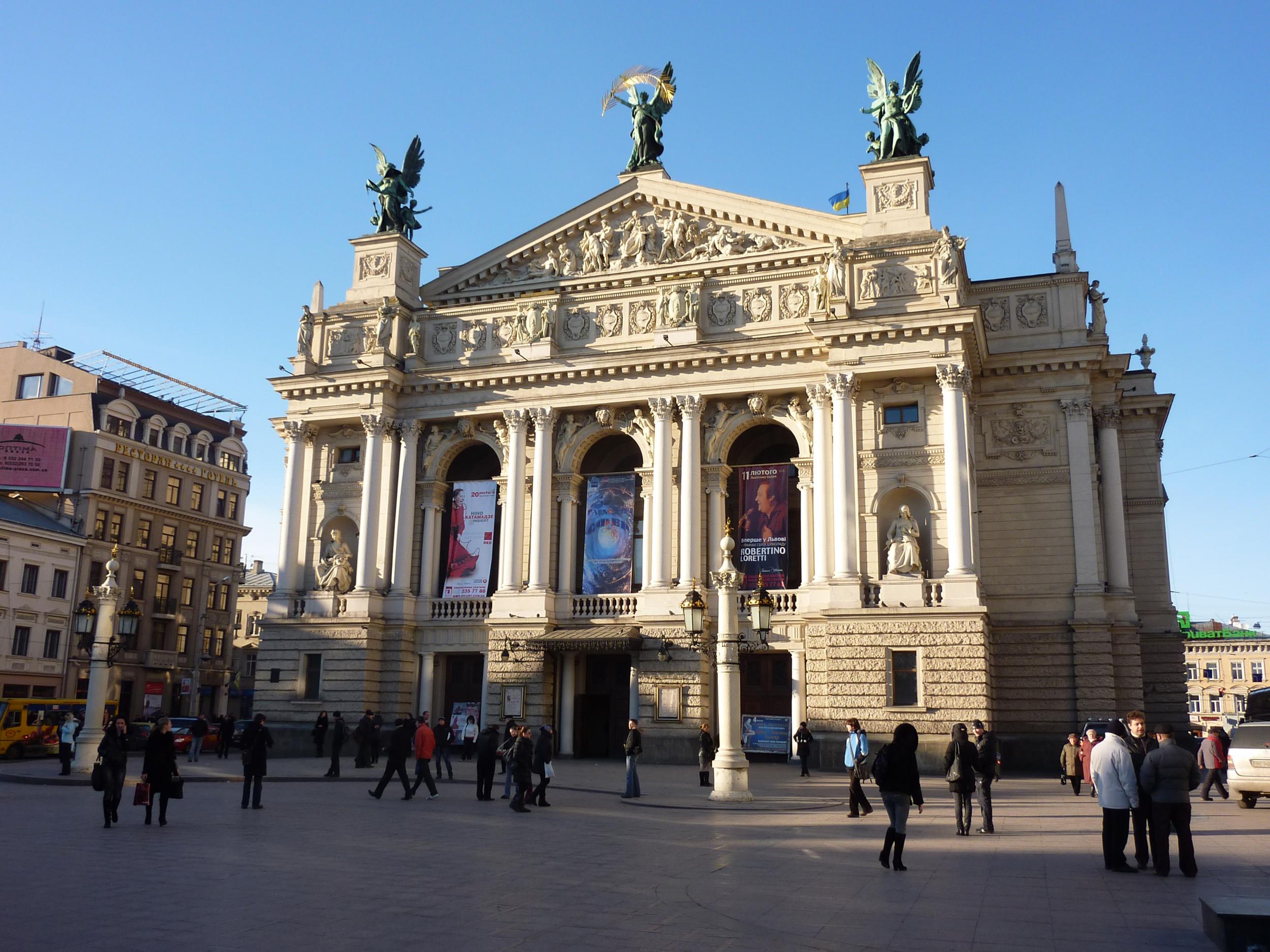
Travel essentials
Getting there
There are no direct flights to Lviv. Ukraine International Airlines fly from Gatwick via Kiev to Lviv’s Danylo Halytskyi International airport (24), from about £190 return.
The city centre is roughly 4 miles west of the airport – a taxi costs about £6 and takes 20 minutes, or the 48 bus runs from the new terminal A (where UIA flights land) every 10-15 minutes from 7am-10pm, and costs about 12p. The writer travelled with UIA and Regent Holidays, which has itineraries to Lviv and Kiev from £855 for five days, including flights and accommodation.
Staying there
You’ll know the George Hotel (25) by its pink Baroque style and second-floor terrace. It has plenty of rustic character, views over the city and serves good pizza. Doubles from £19, B&B with shared bathroom, and £46, B&B, for ensuites.
A 25-minute walk from the city centre is the Villa Stanislavskyi Hotel (26). What it lacks in convenience, it makes up for with extra space and more bang for your buck. Doubles from £35, B&B.
The five-star Hotel Nobilis (27) is in the centre of Lviv. Elegant rooms have antique furnishings, and there’s a piano bar, gym and spa. Doubles from £95, B&B.
Join our commenting forum
Join thought-provoking conversations, follow other Independent readers and see their replies
Comments